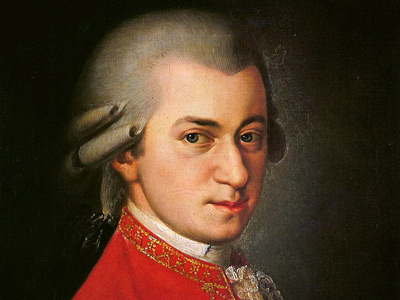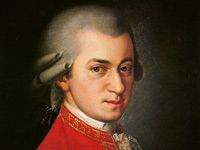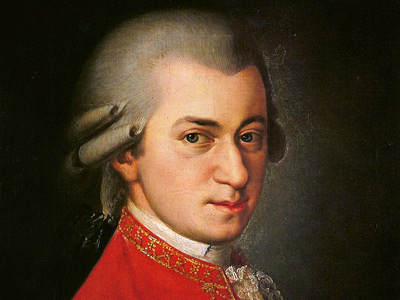Wolfgang Amadeus Mozart (1756-1791)

1788–90: Later Years
Toward the end of the decade, Mozart's circumstances worsened. Around 1786 he had ceased to appear frequently in public concerts, and his income shrank. This was a difficult time for musicians in Vienna because of the Austro-Turkish War: both the general level of prosperity and the ability of the aristocracy to support music had declined.
By mid-1788, Mozart and his family had moved from central Vienna to the suburb of Alsergrund. Although it has been suggested that Mozart's aim was to reduce his rental expenses, research shows that by moving to the suburb, Mozart had not in fact reduced his expenses (as claimed in his letter to Puchberg), but merely increased the housing space at his disposal. Mozart began to borrow money, most often from his friend and fellow Mason Michael Puchberg; "a pitiful sequence of letters pleading for loans" survives. Maynard Solomon and others have suggested that Mozart was suffering from depression, and it seems that his output slowed. Major works of the period include the last three symphonies (Nos. 39, 40, and 41, all from 1788), and the last of the three Da Ponte operas, Così fan tutte, premiered in 1790.
Around this time, Mozart made some long journeys hoping to improve his fortunes: to Leipzig, Dresden, and Berlin in the spring of 1789, and to Frankfurt, Mannheim, and other German cities in 1790. The trips produced only isolated success and did not relieve the family's financial distress.
HISTORY

RESOURCES
This article uses material from the Wikipedia article "Wolfgang Amadeus Mozart", which is released under the Creative Commons Attribution-Share-Alike License 3.0.
© Stories Preschool. All Rights Reserved.









